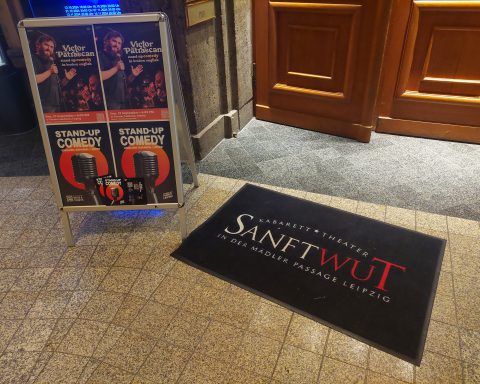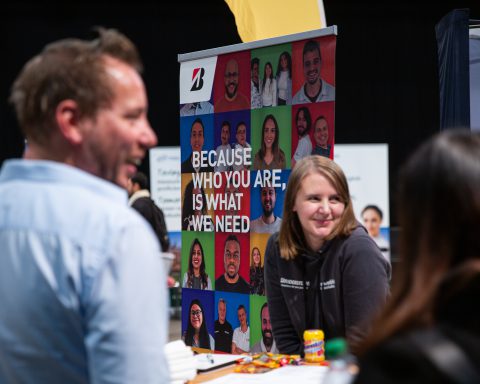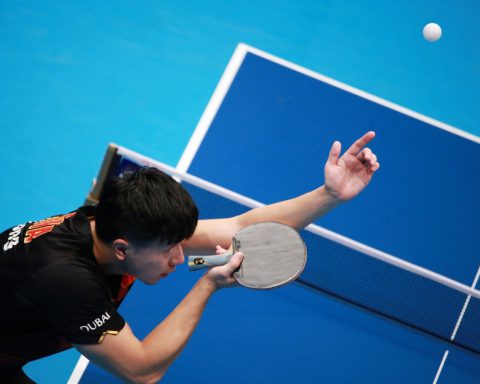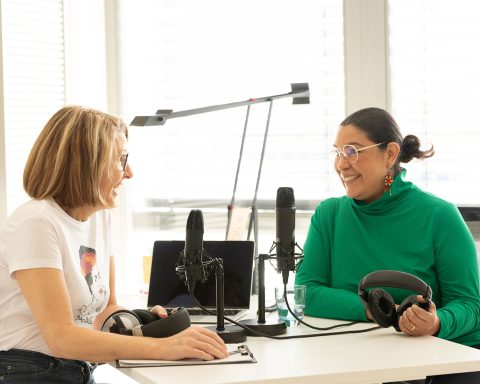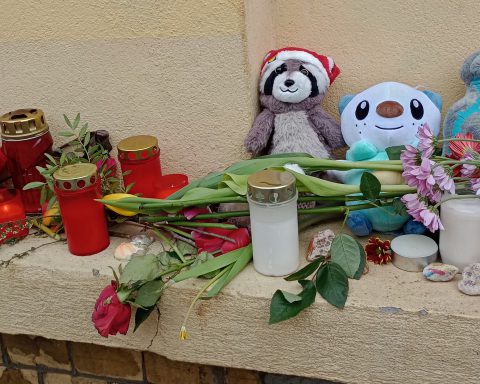Last Monday, Legida (“Leipzig against the Islamisation of the West”) marched once again around the ring road of Leipzig’s city centre. Although their numbers continue to dwindle, Legida’s presence is a reminder that the image of Leipzig as Germany’s hipster capital is utterly incomplete. I spoke to the city’s Head of Unit for Migration and Integration, Stojan Gugutschkow, about his views on Legida. Apart from displaying great enthusiasm for the Leipzig Glocal project, he shared some interesting insights and finished off with a message for Leipzig’s English-speaking community…

Harald Köpping Athanasopoulos: Mr. Gugutschkow, in the English-speaking community many of us feel that xenophobia has become more accepted since the Pegida protests. Do you share this impression?
Stojan Gugutschkow: Not necessarily. I don’t think xenophobia has become more accepted. From the point of view of the city, xenophobia and racism have never been a taboo. I have been working in this area for 25 years, and we have never tried to trivialise the issue. However, I certainly agree that many of the things that had hitherto been contained to closed rooms and internet blogs are now openly stated. The origin of these racist statements is nevertheless still constituted by the same group of people. There hasn’t been a change in attitudes, but in the articulation of these attitudes.
HKA: Do you think Legida is a racist phenomenon? Are the people who go to these demonstrations racists?
SG: I wouldn’t phrase it this harshly and I don’t think this term captures the issue. I had the feeling that a lot of people joined these demonstrations not because they had a problem with foreigners or Islam, but because they had other problems they wanted to articulate on the street. This may be the public broadcasting fee (GEZ-Gebühr) or mistreatment by the public administration. As far as I can see, there’s a discrepancy between the name of this so-called ‘movement’ and the actual problems of its participants. For me the shocking thing was not that these racist attitudes existed, but that so many people allowed themselves to be used for xenophobic purposes, without reflecting on what they wanted to achieve. Furthermore, Legida in Leipzig is not Pegida in Dresden. In Leipzig there has been an overwhelming majority of counter-protesters from the very beginning of the demonstrations. The declining number of people joining the Legida protests shows that many have understood that they were being used for racist purposes.
HKA: What is the demographic profile of a Legida protester?
SG: I have looked at a few contradictory studies from Dresden but I really can’t judge that. We are certainly dealing with a core group of young male neo-Nazis. To be honest I haven’t been to the most recent demonstrations. I think too much public attention actually grants an appreciation to these demonstrations that they don’t deserve. I never thought that they should cover the front pages.
HKA: What efforts does the city of Leipzig make to intellectually defeat Legida?
SG: I don’t think we need a new strategy. We have been trying to establish a strong civil society to combat right-wing violence, racism and xenophobia. We also established several institutions and events to carry out this job, such as the annual week against racism, which we have been carrying out for 12 years, before Legida even existed. Every autumn the intercultural weeks strive to combat racism and discrimination with over 120 events.
Defeating racism is not a job that you can just tick off after a couple of years – it requires a consistent strategic effort.
HKA: Have you spoken with Legida’s leadership?
SG: No, and I don’t see the need to do that.
HKA: There are also some Muslims in Leipzig’s English-speaking community. What is your message to them? Should they be afraid to publicly practice their Islam?
SG: We have received several messages from Muslims in Leipzig who were seriously concerned for the safety of their children. I understand that on a psychological level, but I think they quickly realised that they don’t really need to be afraid. I think they saw that the overwhelming majority of Leipzigers showed solidarity towards them. Furthermore, all of Leipzig has been equally annoyed by the weekly shut-downs of the city centre. I don’t think Legida has had any impact on the practice of Islam in Leipzig.
HKA: Nevertheless, Islam has a very negative reputation in large parts of Leipzig and German society. Would you like to see more public engagement by Leipzig’s Muslims?
SG: No, Leipzig’s Muslim community is actively engaged in our civil society. However, the media’s coverage of Muslim activities is problematic. The media are constantly demanding that Muslim organisations take position on things. Usually, when they do, these statements receive little public attention. Nevertheless, on occasion they do need to take position. The trouble is that Muslims in Germany are poorly organised – there are no bishops or archbishops. There are a couple of umbrella organisations and a Muslim coordinating council. However, in Leipzig, only the Turkish mosque in Herrman-Liebmann-Straße belongs to one of these institutions. This is clearly a problem in terms of the public visibility of Muslim engagement. As for Stadt Leipzig, we have increased the participation of religious communities through an inter-religious roundtable that meets up twice a year, as well as through the Tag der offenen Moschee (mosque open day).
HKA: Last question. What message do you have for Leipzig’s international community in terms of dealing with Legida and xenophobia?
SG: I hope that the demand for grappling with Legida continues to decrease. If a situation occurs when we need to show solidarity, I would obviously want the international community to participate. So far, this has been the case. Apart from that, I would encourage the international community to increasingly interact with people without a recent migration history. 13% of this city’s population are international migrants – however, many Leipzigers still have very little contact with these people. This needs to change. Don’t just stay within your English-speaking community. It is only through crossing cultural and linguistic boundaries that prejudice can be deconstructed. We need to show that increasing cosmopolitanism is not a burden but an enriching experience.
HKA: Thanks very much!

